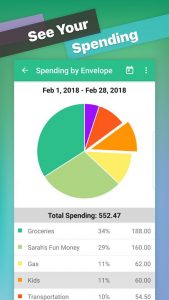“Those who prepared for all the emergencies of life beforehand may equip themselves at the expense of joy.” — E. M. Forster
No matter how good things are, it can always go bad. It could be a family emergency, a medical exigency, or a car breakdown. You could weather these storms with an emergency savings fund.
Emergency savings fund
An emergency savings fund is money you’ve set aside to help cover the cost of any unexpected expenses. Accumulating an emergency savings fund can offset some of these expenses so you don’t have to be distressed.
Still, there are a lot of people in Australia who have no savings to fall back on.
People may have saved for at least a month’s expenses. But is this enough?
How much should you have?
Depending on certain situations, you’d obviously want to save up between 3 and 6 months’ worth of expenses, at the very least. By estimation, this is how long it takes for people to find a new job. It’s just wise to have some cash set aside during this time to pay for food, utility bills, and rent, among others.
At this point, you may have ballparked how much you spend within a 3-6 month period. This is how much you should have in your emergency savings fund and then some.
Budgeting and savings apps such as Goodbudget can help to track your spending effectively.
Goodbudget is based on the envelope budgeting method. It’s an expense tracker and money manager that’s great for home budget planning.

Starting an emergency savings fund
You can now start an emergency savings fund. Follow these tips in setting up this goal:
- look for a high-interest savings account
- set up automatic transfers
- create a cash buffer (optional)
Look for a high-interest savings account
A high-interest savings account is one of the best places to put your emergency savings fund.
A high interest savings account is an account that offers a competitive interest rate. Although it is similar to a bank account, it’s designed to help you save money rather than spend it. The compound interest is calculated daily and paid monthly.
Note: ‘High’ is around 3.00% p.a. in interest.
[Tweet “Emergency Savings Fund! How Much Is Enough?”]
Set up automatic transfers
Once you’ve set up your high-interest savings account, you can either deposit a lump sum (months’ worth of living expenses) or slowly build up to this amount through automatic transfers. You can also deposit a smaller lump sum, $1,000 or so, to your emergency savings fund to give it a headstart.
Create a cash buffer
This is optional, but can be used for smaller emergencies like replacing a laptop. Small amounts of cash ($5 a week) could be a lifesaver in a situation where you can’t access the money in your bank account.
Emergency loans from Cigno
Do you require a fast and small money credit during an emergency as you’re fund wouldn’t suffice?
In this case, Cigno Loans act as a helper, with an easy application process — as well as management of emergency loans or bad credit loans, if you have a less than stellar credit history.
Once endorsed, cash is moved into your bank account with repayments easily arranged.
Note: You’ll thank yourself in the future for starting an emergency savings fund. Just be mindful where to use it — for emergencies.
Disclaimer: Please be aware that Cigno Loans’ articles do not replace advice from an accountant or financial advisor. All information provided is intended to be used as a guide only, as it does not take into account your personal financial situation or needs. If you require assistance, it is recommended that you consult a licensed financial or tax advisor.



